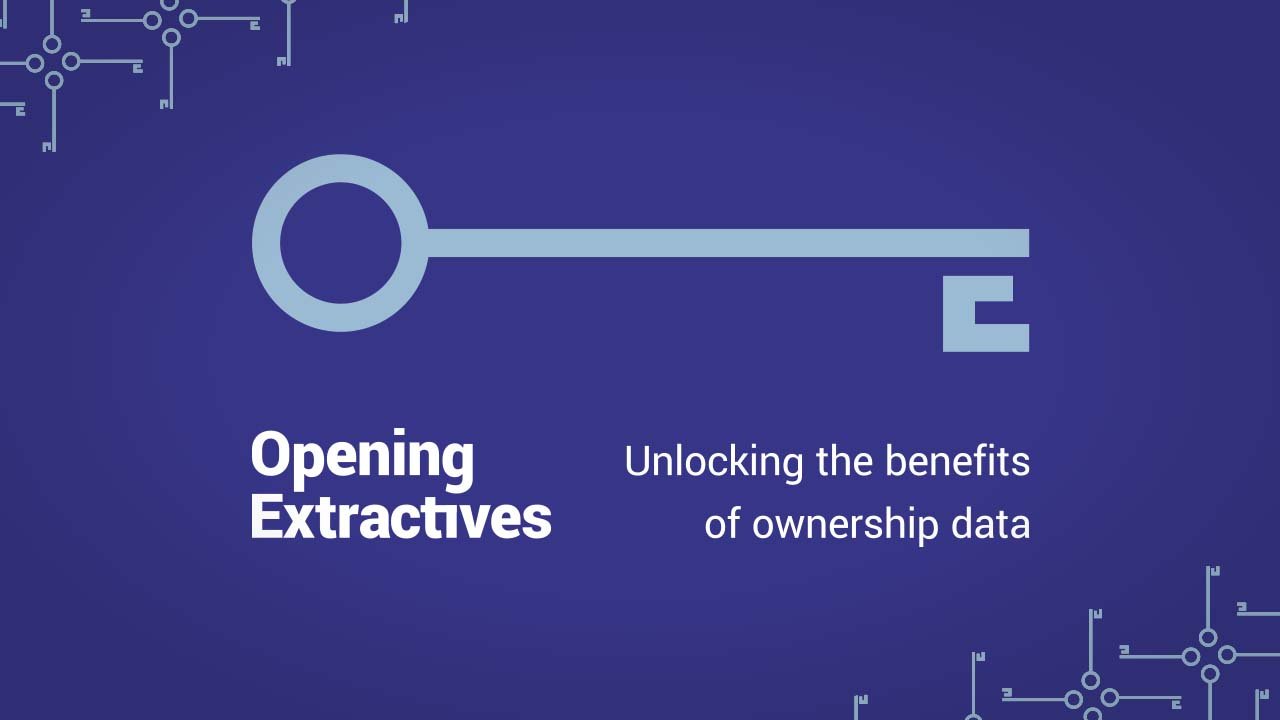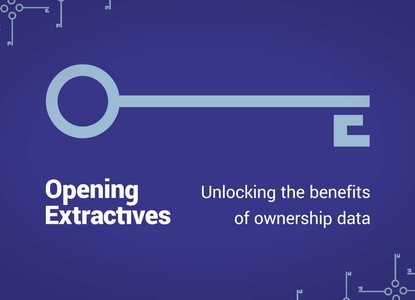The global context: Where next for Opening Extractives?

The Opening Extractives programme began in January 2021 against the backdrop of a global pandemic that was crippling much of the world. Opening Extractives aimed to begin addressing a significant governance and transparency gap – to ensure that ten countries delivered effective disclosure of company ownership in the extractives industry, and that lessons learned in the course of building beneficial ownership registers could be disseminated to promote reform on a larger scale.
Now, in June 2022, the challenges of the pandemic still loom large across the world. Yet, in sharper focus for many of us is the profound shock and pervasive impact of the Russian invasion of Ukraine.
As a consequence of that invasion, Russia has become the most sanctioned country of all time. The impact of sanctions on the Russian state and on a host of wealthy, named individuals with assets and interests spread across the globe, is significant. It has touched many areas of life from the profound; an energy crisis in Europe and significant fears about global food shortages to the bizarre: financial turmoil in a Premier League Football Club.
Right now, the arc of history feels like it is being bent in many directions at once. For those of us working to secure better governance and enhanced transparency, the fight against corruption is part of a much bigger struggle to build a robust legal, policy and technical infrastructure.
Yet, arguably, the biggest collective action challenge we face is addressing climate change. Here too, we must ask ourselves, do we have the right infrastructure in place? Does our financial architecture supply the core building blocks to address that challenge effectively? Few would agree our financial infrastructure is fit for purpose. As demand for clean energy technologies grows, we will likely face economic, political and social challenges similar to those that have been observed in extractive and energy industries in the past. One key component to revising our financial infrastructure is placing better information on who ultimately owns and controls a company in the hands of those who need it – governments, businesses and civil society.
Despite recent calls to implement beneficial ownership transparency from the US Government, the G7 and others, it is still an unmet need for most jurisdictions around the world.
Recent analysis from the Financial Action Taskforce on the effectiveness of implementation of its beneficial ownership standards is troubling. It concludes that just 9% of countries are meeting the effectiveness requirement for the disclosure of the beneficial owners or controllers of companies, and that only 52% have the necessary laws and regulations to understand and verify beneficial ownership information and assess inherent risks in ownership structures.
FATF’s conclusions underscore the importance of Opening Extractives because commitment to beneficial ownership reform has never been higher, but delivery lags far behind.
Yet, we have to be realistic about the scale of the challenge before us. Whilst pursuing technical reforms to bring about the laws, regulations and technology needed to generate ownership information, we must also acknowledge that, “knowing who owns a company that is exerting power over you doesn’t equip you to resist that power” or, by itself address the governance and anti-corruption goals we have.
This is why Opening Extractives is focused on both executing reforms and supporting the effective use of published data. We’ve already seen some promising examples of this in projects like Joining the Dots which connects information on politically exposed persons (PEPs) and beneficial ownership data in Colombia. The purpose of this work is to make data on ownership and control actionable by giving it context – in other words, to make it politically actionable by connecting information on the ownership of a company to the power it may exert on our lives.
None of us knows what the future holds, but it must, for all our sakes, contain real and persistent work to address the massive gap in actionable knowledge that exists on who ultimately owns and controls the businesses that shape our lives. Without that, we will continue to tackle corruption and governance failures blindfolded and with our arms tied behind our backs.

